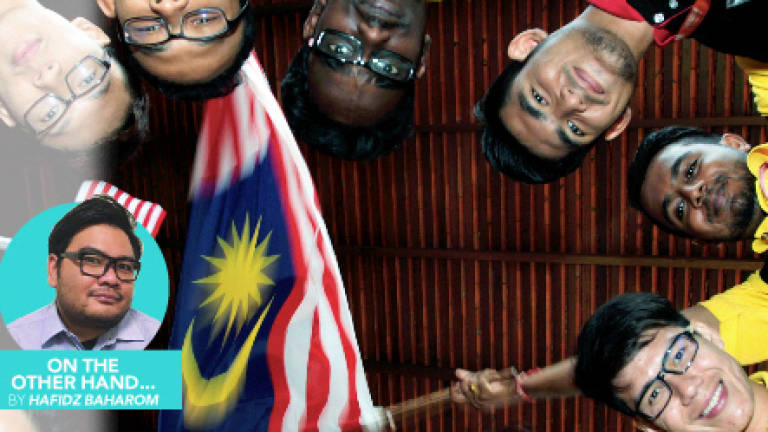Unity and sacrifice

I GOT into an interesting discussion recently on whether or not Malaysians would be able to adapt to achieve unity. I was rather pessimistic throughout, particularly due to the revelation that Khairy Jamaluddin had asked if Malay Malaysians were ready to give up their race preferred boarding schools if the other race type schools were abolished.
And it was greeted with hushed silence. It seems that unity is only a goal when you don't have anything to sacrifice, but others should do so.
The problem with our unity today has been in the making for a while, and we must admit that we are part and parcel of the problem with the best of intentions. For one, we want our children to get the best education possible which we can afford and therefore, we get them into the best schools we can pay for.
Thus, national schools become the institute to go to if you cannot afford sending your children to other schools which charge tuition fees and expect parents to bear at least some of the costs.
Those with high incomes may send their children to private schools, race-based schools and perhaps even Islamic private schools which seem to be an upcoming trend. And because these are separate schools, it creates a class divide as well.
The rich find houses near their schools, the poor around their schools and so on, thus creating communities with the same mindset and with ideas, thoughts and discussions of the same wavelength.
Then comes social media which allows its users to speak their minds without filters, based on their upbringing and surroundings. Subsequently, it shows just how divided the nation is between the haves and have nots, between the religious conservatives and liberals, and even between cultures and races.
This tends to create friction between all such groups online, and also reflects the situation on the ground in terms of unity.
In the case of religious conservatism, the examples are aplenty. A sportswoman winning a gymnastics medal can be criticised for not covering up. A bright student receiving a merit-based award from our national bank can be attacked for not wearing a headscarf.
For the case of income, culture and class, those writing and speaking in English are derided for not understanding Bahasa Malaysia, vice-versa those who can't speak English well when presenting our nation's development successes at the United Nations.
Of course, there will also be that political divide, but let us not get bogged down by it.
And as mentioned earlier, many of those wanting to abolish race-based schools are unwilling to sacrifice their own silos saying it's a constitutionally guaranteed privilege. Well, can we sacrifice privilege so that we can compete with others and be at par with them without the need for special treatment?
Therein lies the crux – everyone wants to keep their share hoping that others will sacrifice to achieve the main goal for everyone. And that is why we need to understand that national unity and even national success comes from sacrifice.
It could be a sacrifice in the form of privileges to level everyone out, or even the need to pay more taxes to cater to the needs of healthcare and education, and even perhaps the need to disburse more income linked to development of urban areas, to be sacrificed to develop rural heartlands.
Is it an issue to ensure that roads and housing are available whether in Kuala Lumpur or Kota Baru? Or even for Sabah and Sarawak to have a power grid and highway?
If there is anything I learned on a trip to Terengganu, it is that a lot more should be done to assist their development, even if it means foregoing projects in Kuala Lumpur for a while. Though honestly, it will be hard for everyone and anyone to understand this.
Similarly, unity cannot be achieved without effort especially when there are those who refuse to learn Bahasa Malaysia – at least to use it in conversation.
Some might argue that it isn't an important language to know on an international scale but that's what you do if you want to unite as a nation and be capable of communicating with one another.
And yet, some may argue that even doing this is too much for them.
Imagine having a group of people stuck in an avalanche, each holding a branch around a dying fire. None are willing to put their branch into the fire first to keep it alive out of differences in class, religion, race and even sexuality, expecting others to do so first.
Do you know what happens in the end?
All of them die grasping a branch that could have saved them altogether.
Hafidz Baharom is a public relations practitioner. Comments: letters@thesundaily.com